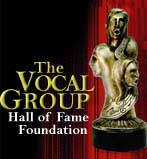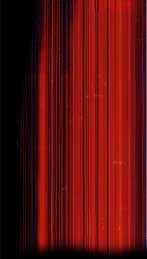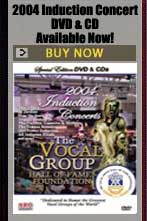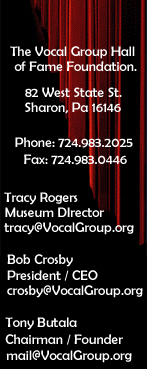| |
Getting impostors to sing a different tune.
House is unanimous in support of original Supreme's serenade.
SPRINGFIELD -- Stop! In the name of Motown.
Or at least in the name of singer Mary Wilson, the former member of the Supremes who serenaded Illinois lawmakers with the 1965 pop classic in what could be a Springfield lobbying first.
Wilson, one of Diana Ross' original backup singers, has taken the lead in a nationwide push for legislation that would stop "impostors" from posing as Motown acts and other recording artists.
Determining just who is an impostor and who is a real Supreme or Platter or Drifter can get complicated. The Illinois bill would count as real only those who recorded under the name of the group.
But all those legalistic worries apparently melted away before Wilson's knockout a cappella rendition of "Stop! In the Name of Love." On Thursday, the House voted 110-0 to approve her anti-impersonator bill.
The bill would not affect tribute bands and other nostalgia acts--breathe easy, Elvis impersonators--in which it is clear to ticket buyers that they are not paying to see the original artists.
But according to Hall of Fame officials, phony acts that confuse customers are cutting into the profits of the real performers. Wilson said phony acts make $3,000 a night. She charges $20,000.
Wilson and an association of veteran performers have already persuaded lawmakers in Pennsylvania, South Carolina and North Dakota to pass similar bills, though some have made it through only one chamber.
The ultimate goal of the Vocal Group Hall of Fame, which books performances for Wilson and other artists, is to persuade Congress to pass a federal law.
"We have given America and the world happiness with our music, and it's time that we have a law that protects us and our legacy," said Wilson.
She said promoters travel the country looking for women who could pass for members of The Supremes, then dress them up in wigs and gowns.
Wilson first explained the issue to Illinois lawmakers in a Tuesday visit to the Capitol, where she testified before the House Consumer Protection Committee.
In the committee hearing, Rep. Terry Parke (R-Hoffman Estates) asked her if she could prove that she was the real Mary Wilson.
That's when Wilson burst into song, belting out a few lines of the Supremes classic to a delighted crowd.
While no one voted against the measure, some lawmakers doubt that state law will help the classic artists. Protection of copyright and other intellectual property rights usually falls under federal jurisdiction, they say.
A simpler solution, said Rep. Bill Black (R-Danville), is for fans to do some research before they buy tickets.
"Buddy Holly died in February 1959 in a plane crash," said Black. "But somebody advertised that Buddy Holly's band, the Crickets, was going to perform at some venue in Indianapolis. So my wife and I went over. ... Well, I heard people saying, `Where's Buddy Holly? Didn't he sing with that band?'
"Come on! Didn't you hear `The Day the Music Died'?"
----------
mmpossley@tribune.com
Copyright © 2006, Chicago Tribune
|










